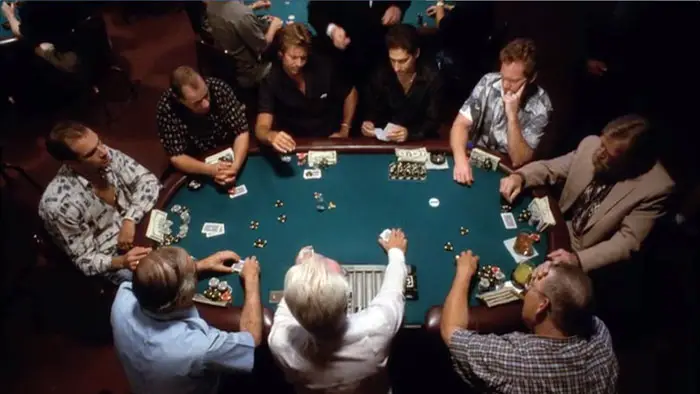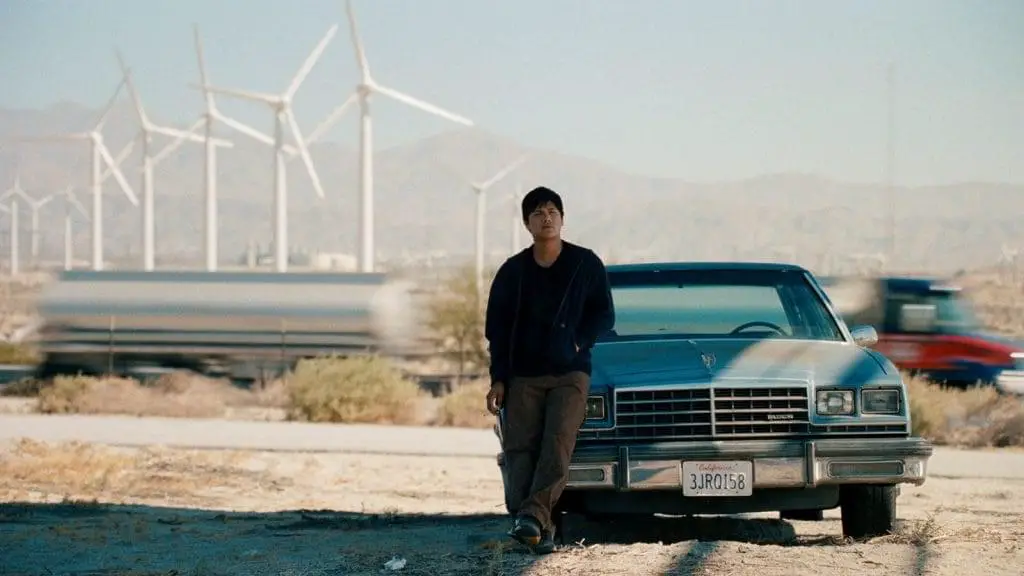
Horror fans know that the right editing choices can make any Sunday drive into the shower scene from “Psycho.” Kiyoshi (Cure, Pulse) Kurosawa has made a career out of long single takes—disturbing gazes that can feel like an eternity of looking behind your back, trying to see something that isn’t there.
There’s a shot like this in the opening of “Doppelganger,” Kurosawa’s latest film to reach U.S. audiences via DVD. Yuka (Hiromi Nagasaku) sees her brother at a supermarket. She’s confused because she thought he was at home. She’s even more confused when she arrives home to find him there, calmly staring at her. Then she receives a phone call. It’s the police informing her that her brother has just committed suicide. Yet her brother was just in the other room. Or was it really her brother? This opening vignette serves as reminder that Kurosawa is a master of the language of horror. With only a few short strokes he sets up a scenario more unsettling than half of the American horror films I saw last year.
Yet just as effortlessly, “Doppelganger” becomes something that Kurosawa is not generally known for: playful.
Not really discarding the doomed tone he used in masterpieces like “Cure” and “Charisma,” but rather using it to create an absurd friction between its seriousness and an endless stream of horror, action, mystery, and science fiction plot devices, Kurosawa’s film traipses genre with the ease of skimming a magazine article. Yet within these scenarios, stereotypical characters, and plot contrivances, the director explores human nature.
Yuka will eventually meet Michio (Kurosawa regular Koji Yakusho), a scientist who is attempting to perfect an advanced wheel chair for paraplegics. The work-obsessed loner has his own run in with impossibility when he comes face to face with… well, himself. When Yuka’s brother encountered his doppelganger he was disturbed to the point of killing himself. Michio, on the other hand tries to ignore it by rushing from the room. Later, he’s coaxed into at least passively acknowledging the benefits of having a proxy–team dating, team problem solving. It helps that Michio’s Doppelganger is everything he’s not: direct, amoral, lusty, comical, ruthless. Stepping in for Michio whenever he feels he’s needed, the Doppelganger helps the hermetic scientist free himself from an oppressive company, perfect his invention, and get laid. But of course this comes at a price. Pragmatic, although not very morally conscious, the Doppelganger robs, lies and kills to get ahead. Eventually this burdens Michio, although not more than the prospect of having to share his work with anyone, even himself.
Kurosawa pokes fun at the idea that a split-personality could form such a clear dichotomy. The Doppelganger is at least a loveable criminal and definitely more fun than the so-called “good” Michio, whose inaction is often as violent and damaging as his other half’s action. What is the preferred self? Or really, is there one?
Instead of providing a clear-cut answer to this existential dilemma, Kurosawa makes a left turn. The final 28 minutes is a hilarious road-trip where the director stages a classic shootout in an abandoned house, a tribute to the rolling boulder sequence from “Raiders of the Lost Ark,” and few hilarious moments of slapstick.
Some may find it absurd, but to me this director’s playtime is still more substantive than that of any number of mainstream Hollywood directors. In “Doppelganger,” Kurosawa proves he has the rare ability to make weighty arguments from seemingly vaporous building blocks, and still have a great time doing it.

